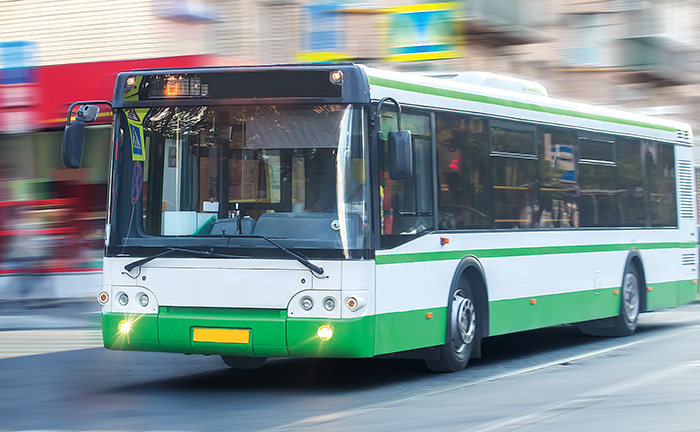
People are on the move again, and many are relying on public transit. In fact, transit ridership is up more than 80 percent since 2020, according to the Federal Transit Administration (FTA).
The American Rescue Plan Act (ARPA) and other grant programs have provided billions in funding for transit authorities nationwide. If Congress passes the infrastructure bill, billions more will flow to transit authorities. And finally, it is important to also note the many local bond elections throughout the country have provided even more funding for upcoming public transportation projects.
Government contractors of every type and size will find an abundance of contracting opportunities with transit authorities over the next several years. A few examples follow.
Washington
The FTA recently announced funding awards from the Capital Investment Grant (CIG) program. The CIG provides funding for construction and expansion of new and existing public transit systems. The revenue can be used for light rail, bus rapid transit, commuter rail, streetcars, and ferries.
Seattle’s Sound Transit light rail expansion project received a CIG grant of $94 million. Another $158 million was received through ARPA funding. Seattle’s expansion project, however, had a cost estimate of $3.1 billion. That earlier estimate is now reset at somewhere between $4.8 billion and $6.2 billion.
Community Transit, the state’s public transit authority, has received $6.5 million in ARPA funding for a Bus Rapid Transit (BRT) project that includes 13 stations. Another public transit project was awarded $20.7 million. Seattle’s Department of Transportation Madison Street BRT project received $10.9 million, and another bus rapid transit project was allocated $3.7 million.

Pennsylvania
The Port Authority of Allegheny County is working to secure funding for a proposed BRT system project that has an estimated $230 million cost. The Port Authority was also, unexpectedly, allocated $19.3 million in ARPA funding to support previously funded projects.
New Jersey and New York
Amtrak is currently closing on a financing plan and an agreement for a $11.6 billion Gateway Tunnel that will benefit both New Jersey and New York. The plan will be reviewed by the Gateway Development Corporation, a consortium selected to oversee the project. The consortium includes representatives from New York, New Jersey, Amtrak, NJ Transit, and the Port Authority. A finalized plan must be submitted to the grant program by August 27 to be eligible for funding this fiscal year. The Gateway Development Corporation will request $5.5 billion more from the federal government to supplement the recent funding.
Wisconsin
The city of Madison has several mass transit projects. One project includes construction of a new BRT system for approximately $160 million. It will be partially subsidized by the federal government. Construction on three new high-speed bus lines will begin by 2023, and the system, when completed, will connect the city’s east and west sides. It will include 31 station locations.
Illinois
The Illinois Department of Transportation (IDOT) is accepting funding applications for projects that will improve public transit systems outside the city of Chicago. The state’s capital construction program also has $110 million in funding. A total of $355 million is targeted for competitive construction grants for transit programs across the state.
Virginia
Like many municipalities, the town of South Boston is ready to spend its allocated $7.8 million in ARPA funding, and community input has been especially supportive of having much of it used for upgrades to transit infrastructure. City leaders plan to work with the Virginia Department of Rail and Public Transportation to launch a public transport study. South Boston will be responsible for overseeing the study and then implementing the recommendations. The study is expected to be completed by December.
Texas
In 2019, the city of Fort Worth initiated a study seeking ways to increase transit’s role in the city’s overall transportation system. The study identified priority corridors and recommended high-capacity transit capabilities. Trinity Metro and the city of Fort Worth received a FTA grant for work on a design plan. Once the first phase is completed, the city will move forward with other infrastructure and economic development improvements.
California
Caltrans has awarded $34 million in state and federal funds to cities, counties, tribes, and transit agencies to improve the state’s transportation network. The grant funding — including $25 million – will be used to plan sustainable transportation projects that reduce greenhouse gas emissions, improve the state highway system, enhance access to safe walkways and bikeways, and increase natural disaster preparedness.
Georgia
The Northeast Georgia Inland Port will receive a $46.87 million grant to build an inland container facility that will provide linkage to the Port of Savannah by a 324-mile rail line. The funding comes from a U.S. Department of Transportation grant that was announced recently. The new facility, which will include six railroad tracks, will be at the Gateway Industrial Centre north of Gainesville.
With massive amounts of funding flowing to transit authorities, it is incumbent on contractors to gather additional information about upcoming opportunities in regions of interest. Ever-increasing numbers of transportation projects can be found throughout the U.S.
Mary Scott Nabers is president and CEO of Strategic Partnerships Inc., a business development company specializing in government contracting and procurement consulting throughout the U.S. Her recently released book Inside the Infrastructure Revolution: A Roadmap for Building America is a handbook for contractors, investors and the public at large seeking to explore how public-private partnerships or joint ventures can help finance their infrastructure projects. Visit http://maryscottnabers.com/ for more information.
